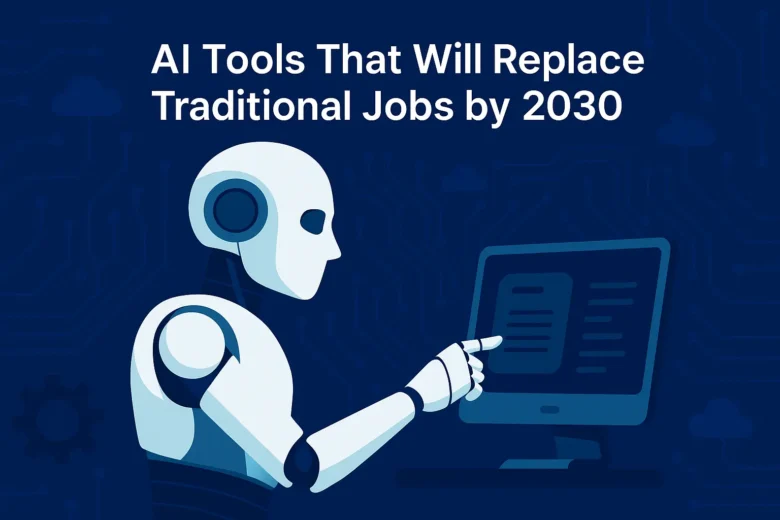Introduction
The rise of artificial intelligence is no longer a distant concept—it’s happening now, and by 2030, AI replacing jobs will be a major shift in the global workforce. As we move closer to the next decade, traditional roles across various industries are being transformed by powerful AI tools. While some jobs will vanish, others will evolve, and new roles will emerge in this ever-changing tech landscape.
1. Customer Support & AI Chatbots
One of the most obvious signs of AI job automation is the growing presence of AI-powered chatbots in customer service. Tools like ChatGPT, Google Bard, and enterprise bots can handle multiple customer queries simultaneously, 24/7, reducing the need for large support teams. By 2030, expect these bots to be smarter, more intuitive, and deeply integrated across industries.
2. Content Writing and Journalism
Yes, even content creators are feeling the AI wave. Tools like Jasper AI, Writesonic, and Copy.ai are capable of generating human-like articles, ads, and reports in minutes. Although editorial oversight remains crucial, the future of work in content writing will include heavy collaboration with AI platforms.
3. Data Entry & Administrative Roles
Repetitive and rule-based jobs like data entry are prime targets for automation. Software like UiPath and Automation Anywhere is already being used to process invoices, manage records, and perform administrative duties. This kind of AI job automation is expected to significantly reduce manual labor in office environments.
4. Retail & Self-Checkout Systems
Retail stores are increasingly shifting to AI-driven systems such as Amazon Go, where AI monitors purchases without the need for cashiers. The trend indicates that AI replacing jobs in retail will become common by 2030, especially in urban and tech-savvy regions.
5. Transportation & Autonomous Vehicles
Self-driving technologies, powered by AI, are poised to disrupt driving professions. Companies like Tesla, Waymo, and Uber are investing heavily in autonomous vehicles. Truck driving, delivery, and taxi services are at risk as the future of work leans toward autonomy and precision.
Will AI Take Over Everything?
Not quite. While AI job automation will disrupt many roles, it will also create new opportunities. Jobs that require emotional intelligence, creative thinking, and strategic leadership are harder for AI to replicate. The key lies in reskilling and adapting to work alongside intelligent machines.
Final Thoughts
Whether you’re an employee, student, or entrepreneur, staying informed about AI replacing jobs is essential. Embrace the tools, learn new skills, and be part of the solution—not a casualty—of the future of work.


1 Comment